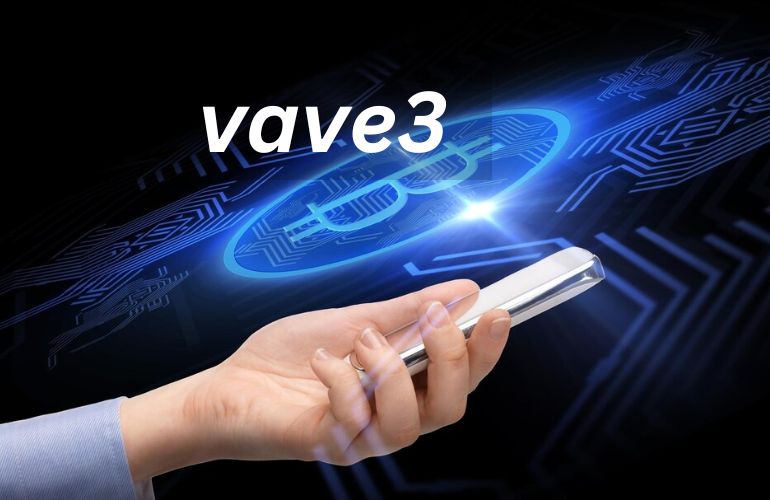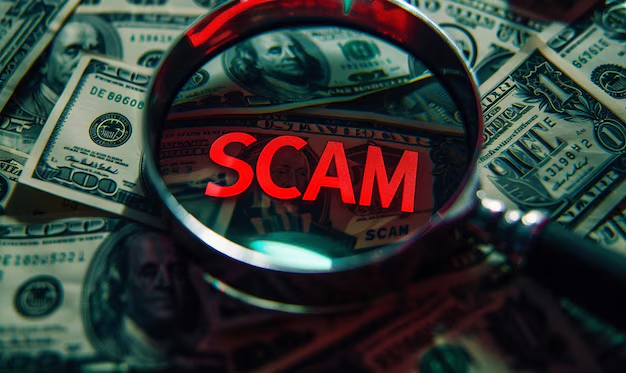
Receiving calls from unknown numbers can be unsettling, especially when they claim to be from reputable companies like Amazon. Recently, many individuals have reported receiving calls from the number 02033222305, prompting questions about its legitimacy. Is this truly Amazon calling, or could it be a scam?
Scam calls are on the rise, and it’s crucial to be aware of potential threats. This article aims to dissect the mystery behind 02033222305, offering insights into how to identify and protect yourself from potential scams. By understanding the nature of these calls, you can better safeguard your personal information and stay vigilant against fraudulent activities.
Understanding the Phone Number 02033222305
Decoding the Segments of the Number
The phone number 02033222305 can be broken down into segments to provide insights into its origin. The initial digits, ‘020,’ are the area code for London, indicating that the call originates from within this metropolitan area. This is a common starting point for many legitimate businesses, including Amazon’s UK operations. However, scammers often spoof area codes to make their calls appear credible, so this alone doesn’t confirm authenticity.
Investigating Caller Patterns
Investigating the call patterns from 02033222305 can help understand its legitimacy. Many reports suggest that this number tends to call multiple times a day, often during business hours. This frequency is typical of both genuine business practices and scam operations, aiming to increase the chances of their targets answering.
Scammers frequently use automated systems to dial numerous numbers, sometimes leading to silent calls where no one is on the other end. Legitimate businesses might also use automated systems, but they typically have a representative ready to speak once the call is answered.
Comparing the times and days of the calls can also provide clues. Businesses usually operate within standard working hours and avoid calling late at night or very early in the morning. If calls from 02033222305 occur outside of these times, it could be a red flag.
Gathering Public Feedback
Public feedback is a valuable resource when investigating suspicious numbers. Websites and forums where users report unknown numbers can provide a wealth of information. Many individuals have shared their experiences with 02033222305, ranging from claims of legitimate deliveries to accusations of scam attempts. By analyzing these reports, patterns emerge that can indicate the nature of the calls.
For instance, some users report being asked for personal information, such as payment details or account credentials, which is a common tactic used by scammers. Genuine calls from Amazon or any reputable company will never request sensitive information over the phone.
Understanding Caller Intent
To better understand whether 02033222305 is associated with legitimate business or scam activities, it is essential to consider the caller’s intent. Scammers typically aim to extract valuable information or prompt immediate action, such as making a payment or providing personal details. They often use high-pressure tactics, threatening account closures or legal actions if the recipient does not comply.
In contrast, genuine business calls, including those from Amazon, usually have a clear and verifiable purpose. They might provide information about an order, request feedback, or resolve an issue. These calls are typically polite, professional, and provide alternative methods to verify the caller’s identity, such as visiting the official website or using the official customer service number.
By breaking down the segments of the number, investigating call patterns, gathering public feedback, and understanding the caller’s intent, one can better gauge whether 02033222305 is a legitimate Amazon number or a scam attempt. This analysis helps protect individuals from potential fraud and ensures they handle such calls appropriately.
Common Scams Involving Amazon
Typical Scams and Red Flags
Scams impersonating Amazon have become increasingly sophisticated, exploiting the company’s wide customer base. Here are some typical scams and the red flags to watch out for:

- Phishing Calls: Scammers pose as Amazon representatives, claiming issues with your account or recent orders. They might ask for personal details, such as passwords or payment information. A legitimate Amazon representative will never ask for this information over the phone.
- Fake Order Confirmations: You might receive a call stating that there’s an issue with a recent order that you didn’t place. The scammer’s goal is to create urgency, prompting you to provide sensitive information.
- Refund Scams: Scammers claim that you are eligible for a refund for a recent purchase and ask for your bank details to process it. Amazon handles refunds directly through your account and would not require additional bank information over the phone.
- Tech Support Scams: Calls pretending to be Amazon tech support, often claiming there’s an issue with your Amazon device or account security. They may ask for remote access to your computer or device, potentially compromising your personal data.
Examples of Past Incidents
Reports from individuals who have experienced these scams offer valuable lessons:
- Unauthorized Charges: Some people reported receiving calls about unauthorized charges on their Amazon account. They were instructed to provide their account login details to resolve the issue. Those who complied often found their accounts compromised shortly after.
- Gift Card Scams: Callers claiming to be from Amazon sometimes instruct victims to purchase Amazon gift cards to resolve a fabricated issue. Once the scammer obtains the gift card codes, the money is gone, and the victim has little recourse.
- Customer Service Impersonation: Scammers pose as customer service agents and offer help with non-existent problems. During the conversation, they try to extract personal and financial information.
Identifying Red Flags
Understanding the signs of a scam can help you avoid falling victim:
- Urgency and Pressure: Scammers often create a sense of urgency, pressuring you to act quickly without thinking. This tactic is designed to make you react emotionally rather than rationally.
- Requests for Personal Information: Be wary of any call requesting personal details, such as passwords, social security numbers, or bank information. Legitimate companies, including Amazon, will not ask for such information over the phone.
- Unsolicited Contact: If you receive a call out of the blue claiming to be from Amazon, be cautious. Verify the call by contacting Amazon directly using the information provided on their official website.
- Poor Call Quality and Unprofessionalism: Scammers often operate from call centers with poor audio quality. If the caller is unprofessional, rude, or hesitant to provide specific details about your account or order, it’s likely a scam.
By recognizing these common scams and understanding the red flags, you can better protect yourself against fraudulent activities. Always verify any suspicious calls directly with Amazon using official channels and be cautious about sharing personal information over the phone.
Is 02033222305 a Legitimate Amazon Number?
Potential Sources of the Call
Determining if 02033222305 is a legitimate Amazon number involves understanding the potential sources of the call. Amazon, like many large companies, uses a variety of numbers for different purposes, including customer service, delivery notifications, and account verification. It’s possible that 02033222305 is associated with one of these services. However, due to the increasing sophistication of scammers, it is also possible for this number to be spoofed or misused by fraudulent actors.
Verifying the Call with Amazon
To ascertain the legitimacy of calls from 02033222305, you can directly verify with Amazon. Here are some steps you can take:
- Check Your Amazon Account: Log in to your Amazon account and check for any notifications or messages regarding recent orders or account activity. If there’s no corresponding information, the call may not be from Amazon.
- Contact Amazon Customer Service: Use the contact information provided on the official Amazon website to reach out to their customer service. Explain the call you received and provide the phone number. Amazon representatives can confirm if the call was genuine or not.
- Use Amazon’s Support Tools: Amazon offers various support tools on their website, such as live chat and email support. These tools can help verify the authenticity of the call.
- Caller Identification Apps: Some apps and services can identify whether a call is from a legitimate business. While not foolproof, these tools can provide additional information about the caller.
Common Practices of Legitimate Amazon Calls
Understanding the practices of legitimate Amazon calls can help differentiate between genuine and fraudulent interactions:
- Purpose of the Call: Legitimate Amazon calls usually have a clear purpose, such as confirming a delivery, addressing a customer service issue, or verifying account details following a customer-initiated request.
- No Pressure Tactics: Genuine Amazon representatives do not use high-pressure tactics or threats. If a caller demands immediate action or threatens consequences, it is likely a scam.
- No Request for Sensitive Information: Amazon will not ask for your password, social security number, or bank details over the phone. Any request for such information should be treated with suspicion.
- Professional Conduct: Amazon representatives maintain a professional tone and provide verifiable information. If the caller is unprofessional or evasive, it could be a scam.
By following these steps and understanding the practices of legitimate Amazon calls, you can better determine whether a call from 02033222305 is authentic or a potential scam. Always verify through official Amazon channels and be cautious about sharing personal information over the phone.
Analyzing Customer Experiences
Evaluating Reports and Feedback from Recipients
Customer experiences provide valuable insights into the nature of calls from 02033222305. Many individuals have reported receiving these calls, and their feedback can help identify patterns and potential red flags. Online forums, review sites, and social media platforms are common places where people share their experiences with unknown numbers.
Some customers report positive interactions, indicating that the call was related to genuine Amazon services like delivery updates or account verification. These individuals often highlight clear communication, a professional tone, and a direct connection to their recent Amazon activities. On the other hand, negative experiences usually involve aggressive tactics, requests for personal information, or vague explanations of the call’s purpose.
Identifying Common Themes and Concerns
Several common themes emerge from the analysis of customer reports:
- Frequent Calls: Many people mention receiving multiple calls from 02033222305 in a short period. This frequency can be indicative of an automated system, which is used by both legitimate businesses and scammers.
- Request for Personal Information: A significant number of reports involve callers asking for sensitive information, such as account passwords or payment details. This is a major red flag, as legitimate companies do not request such information over the phone.
- Unclear Purpose: Some recipients of the call note that the caller provided little to no information about the reason for the call, which left them suspicious. Legitimate calls usually have a clear and direct purpose, related to recent transactions or account activities.
- Aggressive Tactics: Reports of aggressive or high-pressure tactics are common among those who believe the call to be a scam. Legitimate businesses, including Amazon, typically do not use such tactics.
- Positive Experiences: On the other hand, there are reports where recipients verified the legitimacy of the call through their Amazon accounts or by contacting Amazon customer service directly. These positive experiences usually align with recent activities, such as deliveries or account changes.
Analyzing Patterns in Caller Behavior
Analyzing the behavior of the caller can provide additional clues about the legitimacy of the call:
- Timing of Calls: Calls received during standard business hours are more likely to be legitimate, as most businesses operate within these times. Calls at odd hours may indicate a scam.
- Call Quality: Professional calls from legitimate companies typically have good call quality. Poor audio quality, background noise, or unclear speech can be indicators of a scam.
- Follow-Up Actions: After receiving the call, many customers check their Amazon account for any corresponding notifications or alerts. The presence of such alerts can confirm the call’s authenticity.
Protecting Yourself from Scams
Direct and Indirect Verification Methods
To protect yourself from scams, it’s important to verify the authenticity of any suspicious calls. Here are some direct and indirect methods:

- Direct Verification with Amazon: If you receive a call claiming to be from Amazon, immediately log in to your Amazon account. Check for any notifications or messages related to the call. You can also contact Amazon’s customer service using the contact details provided on their official website.
- Caller Identification Tools: Use apps and services designed to identify and block scam calls. These tools can help you determine if a number has been reported by others as suspicious.
- Cross-Reference Information: If the caller provides any information about your account or recent orders, cross-reference this information with your Amazon account. Genuine calls will usually match your account details.
- Research the Phone Number: Search for the phone number online to see if others have reported it as a scam. Websites and forums dedicated to identifying spam calls can provide useful insights.
- Ask for Written Confirmation: Request that the caller send you an email or a message through your Amazon account. Scammers will usually not be able to comply with this request.
Warning Signs of a Phone Scam
Recognizing the warning signs of a phone scam can help you avoid becoming a victim:
- Urgency and Pressure: Scammers often create a sense of urgency, pressuring you to act quickly without verifying the information. Be wary of any call that demands immediate action or threatens consequences.
- Requests for Personal Information: Legitimate companies will not ask for sensitive information such as passwords, social security numbers, or bank details over the phone. Any such request should raise a red flag.
- Unsolicited Calls: Be cautious of unsolicited calls, especially if they claim to be from a company you haven’t interacted with recently. Verify any unexpected calls by contacting the company directly using their official contact details.
- Poor Call Quality and Unprofessionalism: Scammers often operate from call centers with poor audio quality. If the caller is unprofessional or reluctant to provide specific details, it could be a scam.
- Too Good to Be True Offers: Be skeptical of calls offering deals or refunds that seem too good to be true. Scammers use attractive offers to lure victims into providing personal information.
Steps to Take if You Suspect a Scam
If you suspect that a call is a scam, follow these steps:
- Do Not Provide Information: Avoid giving out any personal or financial information. Hang up if the caller pressures you for details.
- Report the Call: Report the suspicious call to Amazon and to your local consumer protection agency. This helps authorities track and prevent scams.
- Block the Number: Use your phone’s settings or a caller identification app to block the number. This prevents further calls from the same number.
- Monitor Your Accounts: Keep an eye on your bank accounts and online accounts for any suspicious activity. Report any unauthorized transactions immediately.
- Educate Yourself and Others: Stay informed about common scam tactics and share this information with friends and family. Awareness is a key defense against scammers.
Strategies for Dealing with Unknown Callers
When dealing with unknown callers, adopting certain strategies can help you stay safe:
- Let Unknown Calls Go to Voicemail: If you don’t recognize the number, let the call go to voicemail. Legitimate callers will leave a message, while scammers often won’t.
- Use Caller ID: Take advantage of caller ID services to screen calls. Many phones and apps provide information about the caller that can help you decide whether to answer.
- Verify Before Acting: Always verify the caller’s identity and the reason for the call before taking any action. Use official contact details from the company’s website.
- Stay Calm and Cautious: Scammers rely on creating panic and confusion. Staying calm and cautious can help you think clearly and avoid falling for their tricks.
By implementing these protective measures and staying vigilant, you can significantly reduce the risk of falling victim to phone scams. Always verify suspicious calls and be cautious about sharing personal information over the phone.
How to Verify if the Call is Really From Amazon
Step-by-Step Verification Process
When you receive a call claiming to be from Amazon, it’s important to verify its authenticity. Follow these steps to confirm whether the call is legitimate:
- Check Recent Activity: Log into your Amazon account and review recent activity, including orders and messages. If the call pertains to an order or account issue, there should be corresponding information in your account.
- Use Official Contact Information: Reach out to Amazon’s customer service using the contact details provided on their official website. Do not use any contact information provided by the caller unless you can verify its authenticity.
- Ask for an Email Confirmation: Request the caller to send an email through your Amazon account. Legitimate representatives can communicate via email, allowing you to verify the sender’s address and the content of the message.
- Cross-Reference the Number: Look up the phone number online to see if it has been reported as suspicious. Websites that track scam numbers can provide additional information and user reports.
- Consult Amazon’s Help Section: Amazon’s website has a help section where you can find information on how they contact customers. Compare the caller’s claims with the official guidelines provided.
Additional Tips for Safe Online Interactions
Besides verifying phone calls, practicing safe online interactions can help protect your information:
- Enable Two-Factor Authentication (2FA): Add an extra layer of security to your Amazon account by enabling 2FA. This requires a second form of verification when logging in, making it harder for scammers to access your account.
- Update Passwords Regularly: Change your Amazon account password periodically and avoid using the same password across multiple sites. Use a strong password that combines letters, numbers, and special characters.
- Monitor Account Activity: Regularly check your account for any unusual activity. If you notice anything suspicious, report it to Amazon immediately.
- Be Wary of Phishing Emails: Scammers often use emails to mimic legitimate companies. Always check the sender’s address and avoid clicking on links or downloading attachments from unknown sources.
- Educate Yourself on Common Scams: Stay informed about common scams and tactics used by fraudsters. Awareness can help you recognize and avoid potential threats.
- Use Secure Networks: Avoid accessing your Amazon account over public Wi-Fi networks, which can be less secure. Use a trusted, private network whenever possible.
Recognizing Legitimate Amazon Communications
Understanding how Amazon typically communicates with customers can help you identify genuine interactions:
- Order Confirmations: Amazon sends order confirmations and updates via email. These messages include details about the order, delivery dates, and tracking information.
- Account Notifications: Alerts about account activity, such as password changes or security concerns, are sent through email and can be found in your account’s message center.
- Customer Service: If you initiate a support request, Amazon representatives may call you. These calls usually follow an email confirmation of your request.
- Promotional Offers: Promotional emails from Amazon come from official addresses and often contain links to the Amazon website. Be cautious of offers that seem too good to be true.
By following these steps and tips, you can effectively verify the authenticity of calls claiming to be from Amazon and protect your personal information from scammers. Always use official channels for verification and stay vigilant about potential threats.
What to Do If You Answered the Call from 02033222305
Immediate Steps to Take
If you answered a call from 02033222305 and suspect it might be a scam, it’s important to act quickly to protect yourself. Here are the steps to follow:
- Do Not Share Personal Information: If the caller asks for sensitive information, such as your Amazon account password, payment details, or social security number, do not provide it. Hang up immediately if you feel uncomfortable.
- End the Call Politely: You can end the call politely if you suspect it to be a scam. You don’t need to confront the caller or explain your reasons for hanging up.
- Note the Details: Write down any details you remember from the call, such as the caller’s name, the nature of the request, and any phone numbers provided. This information can be useful if you need to report the incident.
- Check Your Accounts: Log into your Amazon account and other financial accounts to check for any suspicious activity. Look for unauthorized transactions or changes in account settings.
Reporting the Call
Reporting the suspicious call can help authorities track and prevent scams. Here’s how you can do it:
- Contact Amazon: Report the call to Amazon using their customer service. Provide them with the details you noted during the call. Amazon can confirm whether the call was legitimate and advise you on further steps.
- Notify Your Bank: If you shared any financial information or suspect your financial accounts might be at risk, contact your bank immediately. They can monitor your accounts for suspicious activity and help secure them.
- Report to Local Authorities: File a report with your local consumer protection agency or law enforcement. This can help them track scam activities and warn others in your area.
- Use Online Reporting Tools: Websites that track scam phone numbers allow users to report suspicious calls. Sharing your experience can help others identify potential scams and avoid falling victim.
Monitoring and Protecting Your Information
After answering a suspicious call, ongoing vigilance is necessary to protect your personal information. Here are some steps to consider:
- Change Passwords: Change the passwords for your online accounts, especially if you shared any information during the call. Use strong, unique passwords for each account.
- Enable Two-Factor Authentication (2FA): Add an extra layer of security to your accounts by enabling 2FA. This requires a second form of verification, such as a text message code, when logging in.
- Monitor Credit Reports: Regularly check your credit reports for any unusual activity. You can request a free credit report from major credit bureaus and monitor for unauthorized accounts or credit inquiries.
- Use Security Software: Ensure your devices have updated security software to protect against malware and other cyber threats. This can help prevent unauthorized access to your personal information.
Educating Yourself and Others
Staying informed about common scam tactics can help you and others avoid becoming victims. Here are some ways to educate yourself and your community:
- Stay Updated: Keep yourself informed about the latest scams targeting individuals. Many consumer protection agencies and websites provide regular updates on new scam tactics.
- Share Information: Educate friends and family about your experience and how to recognize and avoid phone scams. Sharing your knowledge can help protect others.
- Attend Workshops: Participate in workshops or seminars on cyber security and scam prevention. These events often provide valuable tips and resources for staying safe.
- Use Trusted Resources: Rely on trusted resources and official channels for information about scams and cyber security. Avoid spreading unverified information that could cause unnecessary alarm.
By taking these steps, you can protect yourself and others from the risks associated with answering suspicious calls. Always be cautious when sharing personal information over the phone and verify the caller’s identity through official channels.
Preventative Measures
How to Protect Yourself from Phone Scams
Protecting yourself from phone scams requires proactive measures and awareness. Here are some strategies to keep your personal information safe:

- Use Call Blocking Features: Most smartphones have built-in features to block unknown or suspicious numbers. Utilize these features to reduce the number of unsolicited calls.
- Install Caller ID and Spam Blocking Apps: There are numerous apps available that can identify and block spam calls. These apps can provide additional information about incoming calls and help you avoid potential scams.
- Avoid Sharing Personal Information: Be cautious about sharing personal information over the phone, especially with unsolicited callers. Legitimate companies will not ask for sensitive information like passwords or social security numbers over the phone.
- Verify Caller Identity: If you receive a call claiming to be from a company, hang up and call the company back using the official number listed on their website. This helps confirm whether the call was genuine.
- Educate Yourself on Common Scams: Stay informed about the latest scam tactics. Knowledge about common scam methods can help you recognize and avoid them.
- Be Skeptical of Unsolicited Offers: Be wary of unsolicited calls offering too-good-to-be-true deals or claiming you have won a prize. Scammers often use such tactics to lure victims into providing personal information.
Strategies for Dealing with Unknown Callers
Dealing with unknown callers effectively can prevent scams and protect your information. Here are some strategies:
- Let Calls Go to Voicemail: If you do not recognize the number, let the call go to voicemail. Legitimate callers will leave a message with their contact information and reason for calling.
- Use a Script: Prepare a script for handling unknown callers. For example, you can say, “I do not conduct personal business over the phone. Please send me an email or letter.” This can help you manage calls without feeling pressured.
- Ask Questions: If you decide to engage with an unknown caller, ask detailed questions about their identity and the purpose of the call. Scammers often struggle to provide specific information.
- Don’t Answer Personal Questions: Avoid answering personal questions or providing any information about your financial status, family, or personal preferences. Scammers often gather this information to create more convincing schemes.
- Report Suspicious Calls: Report any suspicious calls to your phone carrier and local authorities. Many carriers have tools to block spam and scam calls, and reporting can help track and prevent fraudulent activities.
Educating Friends and Family
Sharing your knowledge about phone scams with friends and family can help protect them as well. Here’s how to spread awareness:
- Discuss Common Scams: Talk to your friends and family about common phone scams and the tactics used by scammers. Awareness is a powerful tool in preventing scams.
- Share Resources: Provide them with resources such as websites, apps, and articles that offer tips on identifying and avoiding scams.
- Encourage Safe Practices: Encourage your loved ones to adopt safe phone practices, like using call blocking features and not sharing personal information over the phone.
- Set Up Alerts: Help them set up alerts and monitoring tools for their accounts. This can help detect any suspicious activity early.
- Role-Playing Scenarios: Practice role-playing scenarios with them where they receive a suspicious call. This can help them feel more confident in handling such situations in real life.
By implementing these preventative measures and educating others, you can significantly reduce the risk of falling victim to phone scams. Stay vigilant, use technology to your advantage, and always verify the identity of unknown callers.
Conclusion
Staying vigilant and informed is key to protecting yourself from potential phone scams, especially those involving well-known companies like Amazon. By understanding how to verify suspicious calls, recognizing common scam tactics, and implementing preventative measures, you can safeguard your personal information and avoid falling victim to fraudulent schemes. Remember to always verify the identity of unknown callers through official channels and educate those around you about the risks and signs of phone scams. With these strategies, you can confidently manage unsolicited calls and maintain your privacy and security.
Frequently Asked Questions
1. How can I verify if a call from 02033222305 is really from Amazon?
Log into your Amazon account and check for notifications related to the call. You can also contact Amazon customer service using the contact information on their official website to verify the call.
2. What should I do if I accidentally shared personal information with a suspicious caller?
Immediately change your Amazon account password and any other passwords that may be compromised. Monitor your accounts for unusual activity and contact your bank if you shared financial information.
3. Why am I receiving multiple calls from 02033222305?
Frequent calls from this number could indicate it is an automated system used by either Amazon or scammers. To determine the legitimacy, verify the call directly with Amazon.
4. What are common signs of a phone scam?
High-pressure tactics, requests for personal or financial information, unclear reasons for the call, and poor call quality are common indicators of a scam.
5. How can I block unwanted calls from 02033222305?
Use the call blocking features on your phone or install a caller ID and spam blocking app to prevent further calls from this number.









